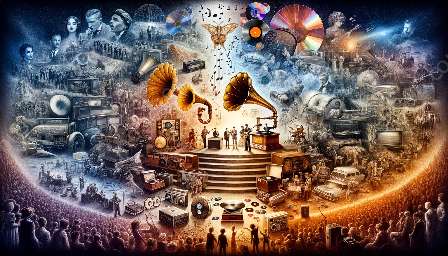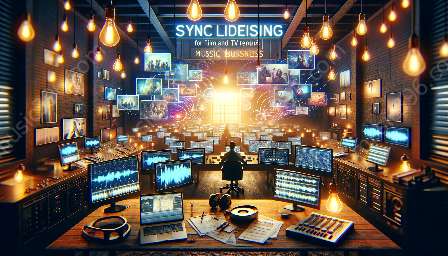Music licensing agreements are essential in the music industry, ensuring that creators and platforms work together within the bounds of copyright and licensing laws. In this comprehensive guide, we'll explore the nuances of music licensing agreements for various platforms and their compatibility with music copyright and licensing, as well as the impact on the music business.
Understanding Music Licensing
Music licensing refers to the process of granting legal permission to use copyrighted music. It involves various rights, such as the right to reproduce, distribute, perform, or display the music. These rights are typically licensed to different entities, including streaming services, broadcasters, advertisers, and more.
Types of Music Licensing Agreements
There are several types of music licensing agreements, each tailored to specific uses of music. These include:
- Public Performance Rights: These agreements allow music to be performed or played in public spaces, such as restaurants, bars, and venues.
- Sync Licensing: This type of agreement covers the synchronization of music with visual media, such as in films, TV shows, commercials, and video games.
- Mechanical Licenses: These licenses are necessary for the reproduction and distribution of music, including digital downloads and physical copies.
- Master Use License: This agreement grants the right to use a specific recording of a song, typically for sampling or cover versions.
Music Licensing and Different Platforms
When it comes to music licensing, different platforms have unique requirements and considerations:
Streaming Services
Streaming platforms, such as Spotify, Apple Music, and TIDAL, require licensing agreements with record labels, publishers, and performing rights organizations. These agreements ensure that the platforms have the necessary rights to stream music to their users.
Video Sharing Platforms
Platforms like YouTube and Vimeo involve complex licensing issues due to the user-generated content. Music licensing agreements must account for the use of music in user-generated videos while protecting the rights of creators.
Broadcasters
Radio stations, TV networks, and satellite radio services require licensing agreements to broadcast music to their audiences. These agreements often involve performance rights organizations to ensure that songwriters and publishers are compensated for their work.
Compatibility with Music Copyright and Licensing
Music licensing agreements must align with copyright laws and licensing regulations. It's essential for both creators and platforms to understand the legal framework surrounding music copyright and licensing to ensure compliance and fair compensation.
Rights Holder Compensation
Agreements should outline how rights holders, including songwriters, composers, and performers, are compensated for the use of their music. This compensation may include royalties based on usage and performance metrics.
Clearance and Permissions
Platforms must obtain clearances and permissions for the music they use to avoid copyright infringement and legal disputes. This process involves identifying and contacting the rights holders to secure the necessary licenses.
Impact on the Music Business
Music licensing agreements play a crucial role in shaping the music business:
Revenue Streams
For rights holders, licensing agreements represent significant revenue streams. The use of their music on various platforms generates royalties, contributing to their overall earnings.
Market Access
Platforms rely on licensing agreements to access a diverse catalog of music, providing users with a wide range of content. These agreements influence the availability of music to audiences worldwide.
Legal Compliance
Compliance with music licensing agreements and copyright laws is essential for the stability and legitimacy of the music industry. Adhering to these agreements ensures that creators and platforms operate within legal and ethical boundaries.
Conclusion
Understanding music licensing agreements for different platforms is crucial for navigating the complex landscape of copyright, licensing, and the music business. By recognizing the nuances of music licensing, its compatibility with copyright laws, and its impact on the industry, both creators and platforms can establish fair and mutually beneficial relationships.









































